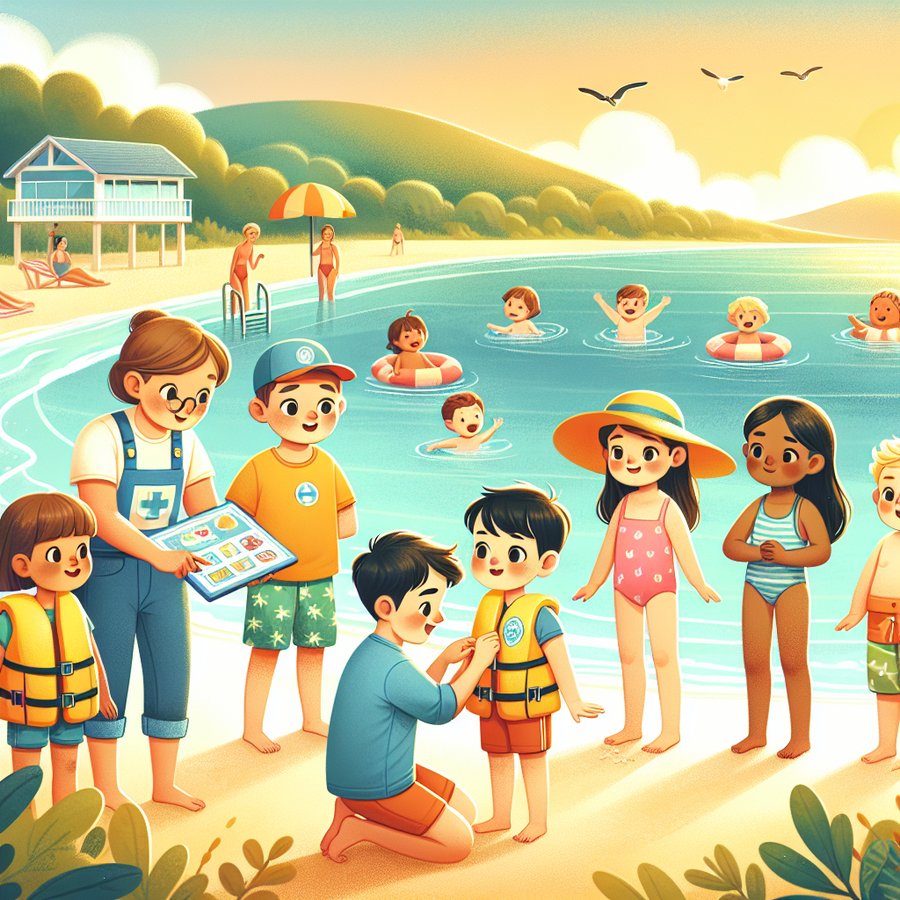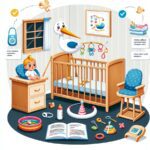Summer is synonymous with fun, sun, and water play for families, especially those with young children. However, amidst the excitement, ensuring water safety for young children during summer becomes paramount. Yearly, numerous reports highlight the risks young children face near water bodies, making it crucial for parents and guardians to be well-informed and vigilant. This article dives deep into effective measures and practices to safeguard your children from water-related dangers, ensuring a safe and enjoyable summer for everyone.
Understanding the Importance of Water Safety
Water safety is not just about preventing drowning; it encompasses a broader spectrum of preventive measures aimed at protecting young children from various water-related hazards. Drowning is the leading cause of injury-related death among children aged 1-4, and toddlers are particularly at risk due to their natural curiosity and lack of fear. It’s essential to understand that drowning can occur quickly and silently, making constant supervision a non-negotiable aspect of water safety.
Moreover, the potential for water ingestion leading to secondary drowning or dry drowning is another critical reason why water safety cannot be taken lightly. These conditions, although rare, can have serious consequences if not recognized and addressed promptly. The key to ensuring water safety for young children during summer lies in adopting a proactive and comprehensive approach to mitigate risks.
How to Ensure Water Safety for Young Children During Summer
Ensuring water safety for young children during summer demands a multifaceted strategy that includes education, supervision, and the use of safety devices. First and foremost, never leave children unattended near any water body, be it a pool, beach, or bathtub. It’s also beneficial to enroll your child in age-appropriate swim lessons, which can significantly reduce the risk of drowning by equipping them with essential water survival skills.
Another critical measure is to establish and enforce clear water safety rules, such as no running near the pool and always swimming with a buddy. Additionally, ensuring that pools are fenced with self-locking gates can prevent unsupervised access to water. For extra precaution, consider using appropriate flotation devices and life jackets that are approved by the U.S. Coast Guard. However, it’s crucial to recognize that these devices are not substitutes for supervision but rather an additional layer of safety.
Advanced Water Safety Measures
Beyond the basics, several advanced measures can further enhance water safety for young children during summer. Learning CPR and basic first aid can be life-saving in the event of an emergency. Familiarizing yourself with common signs of drowning and how to respond effectively can also make a significant difference in emergency situations. It’s equally important to understand the specific risks associated with different water environments, such as pools, beaches, and lakes, and to prepare accordingly.
Investing in a pool alarm that alerts you if someone enters the water can provide an additional safety net. Also, keeping rescue equipment nearby and ensuring that everyone in the family knows how to use it can further bolster your water safety efforts. Remember, water safety is a continuous learning process, and staying informed about the latest safety recommendations and guidelines is crucial.
In conclusion, ensuring water safety for young children during summer requires a diligent and informed approach. By combining supervision, education, and the use of safety devices, along with preparing for emergencies, families can enjoy the summer season while minimizing the risks associated with water activities. Let’s make water safety a priority, ensuring a fun and safe summer for our youngest family members.
For more information on CPR and first aid for children, visit the Understanding Infant CPR: A Life-saving Guide for Parents.
Related topics that might interest you include Sun Protection Tips for Babies, Choosing the Safest Baby Car Seats for Newborns, and How to Baby Proof Your Home Effectively Against Electrical Hazards.













